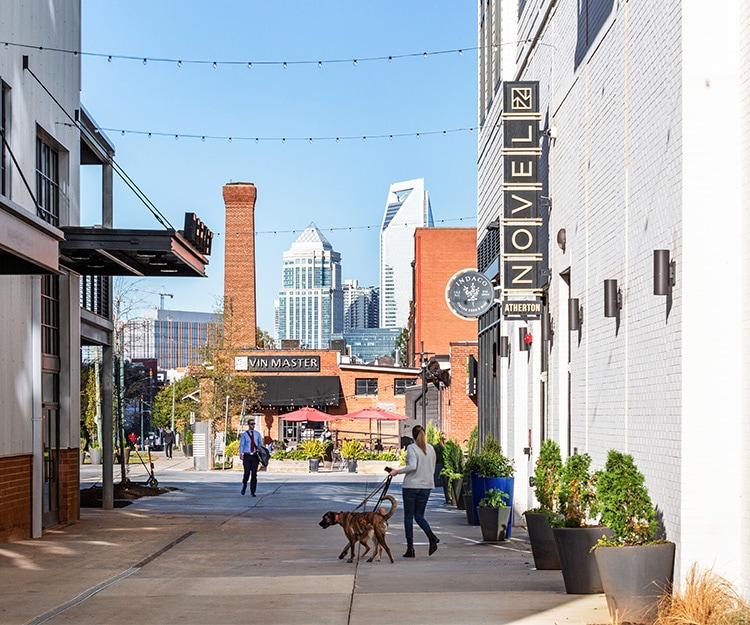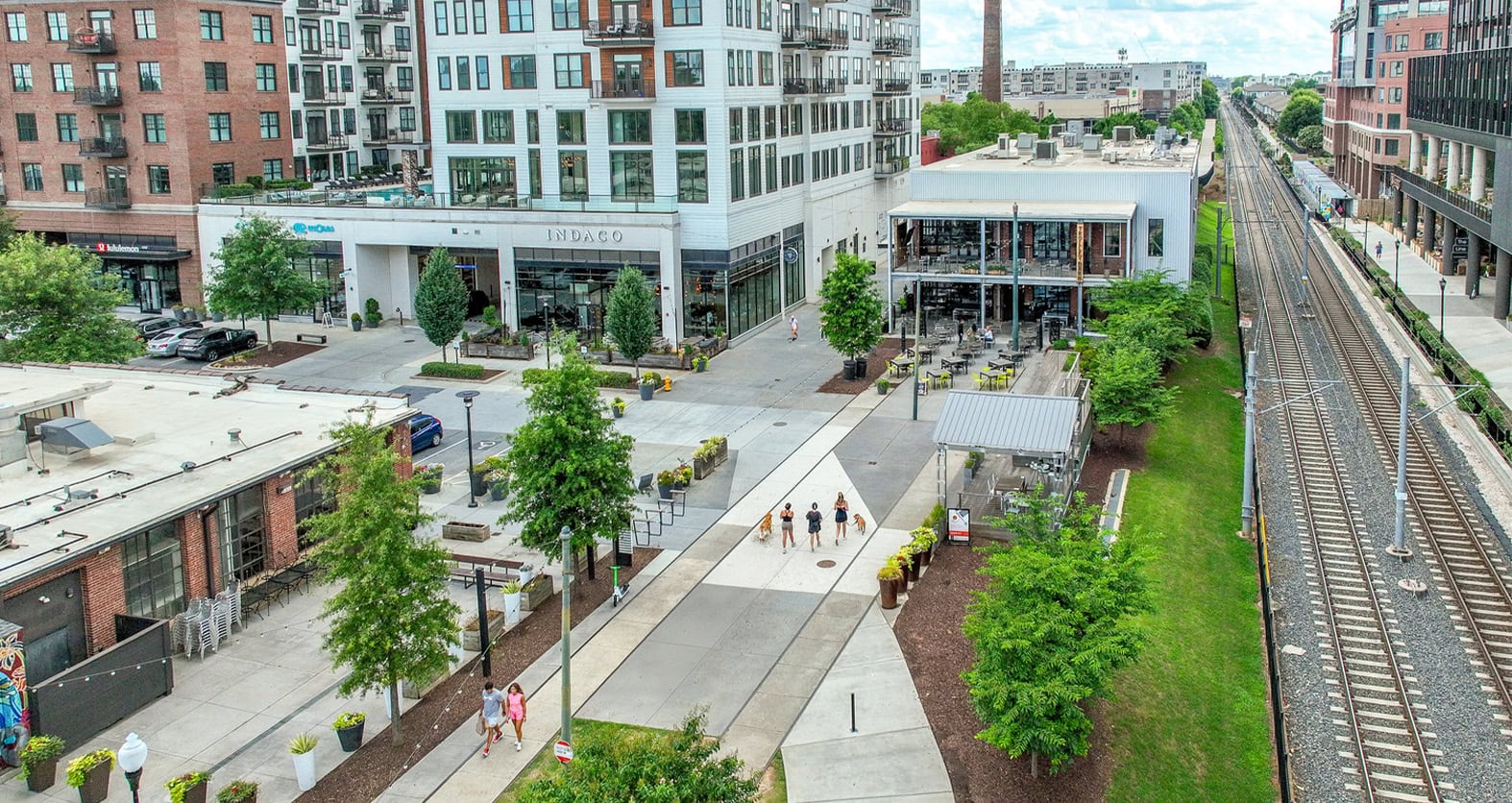Charlotte, NC
Atherton Mill
Beating Heart of South End
status
Completed 2019
client
Edens and Crescent Communities
expertise
Mixed Use, Residential, Retail
services
Landscape Architecture Civil Engineering Urban Design

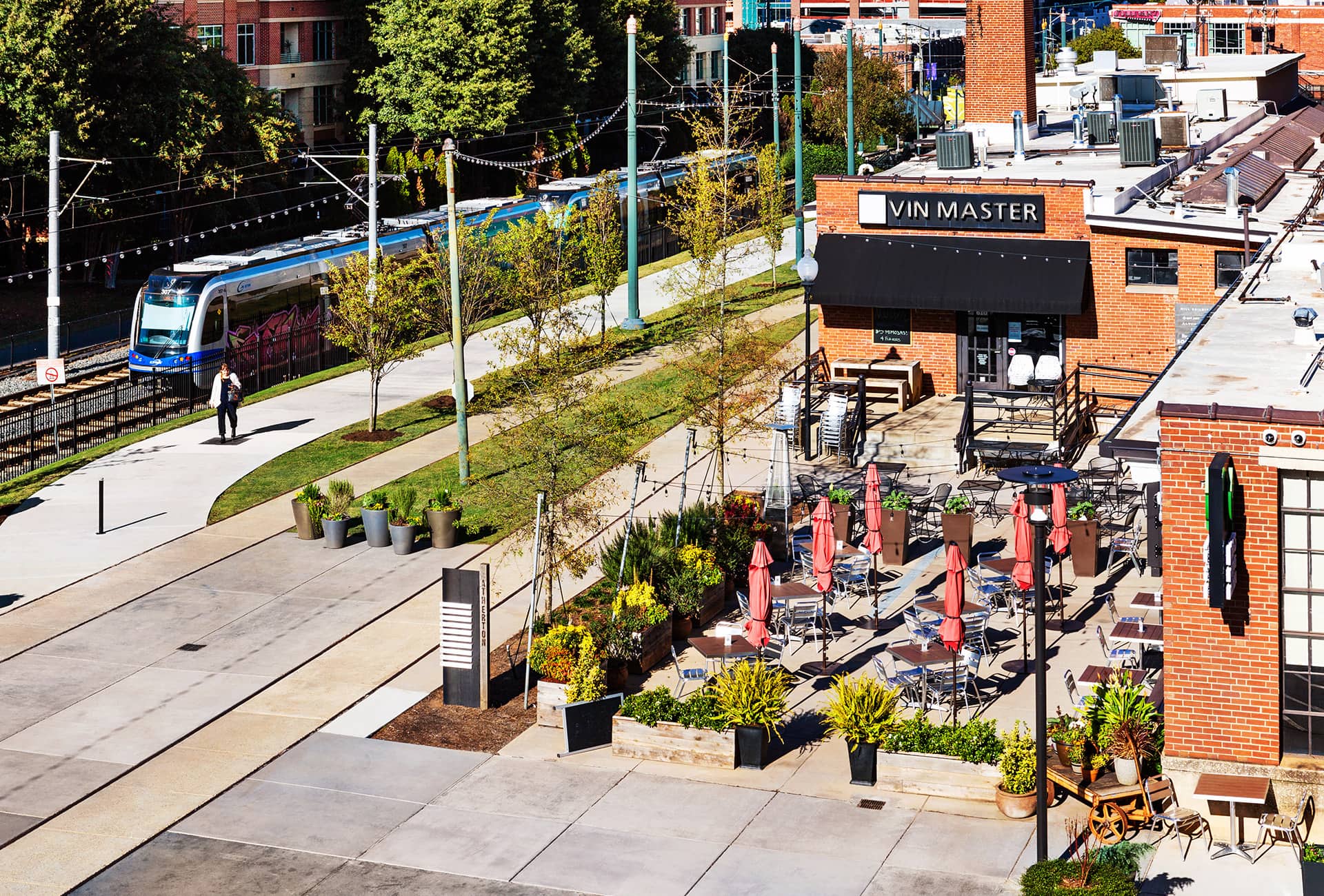
Historic Charm Meets Premier Retail Experience
One of Charlotte’s oldest textile mills, in one of the city’s trendiest neighborhoods, takes on a new life as a walkable, high-end, mixed-use destination.
As the popularity of South End increased, a national real estate developer, recognized the opportunity to repurpose the defunct Atherton Cotton Mill site into a luxury retail and residential destination. In 2016 they selected LandDesign to lead the landscape architecture and civil engineering for their premier adaptive re-use development set to restore the historic site back to a thriving hub for both business and community.
The Atherton Cotton Mill was the first textile mill to be built in Charlotte’s Factory District back in 1893, which is better known as South End today. A catalyst for the development of other factories, businesses, and even a Charlotte trolley station, the neighborhood quickly transformed into a booming business district.
Over time, Atherton Mill followed the tragic fate of many of North Carolina’s mill towns and closed its doors moving production overseas. With the mill closed, South End became a blighted industrial ghost town for decades. In the 1990s, developers started to show interest in revitalizing South End given its proximity to Charlotte’s growing business district in Uptown. With the help of the Charlotte Center City Partners, these early visionaries began to demonstrate South End’s potential to be a desirable and attractive destination for businesses and residents.
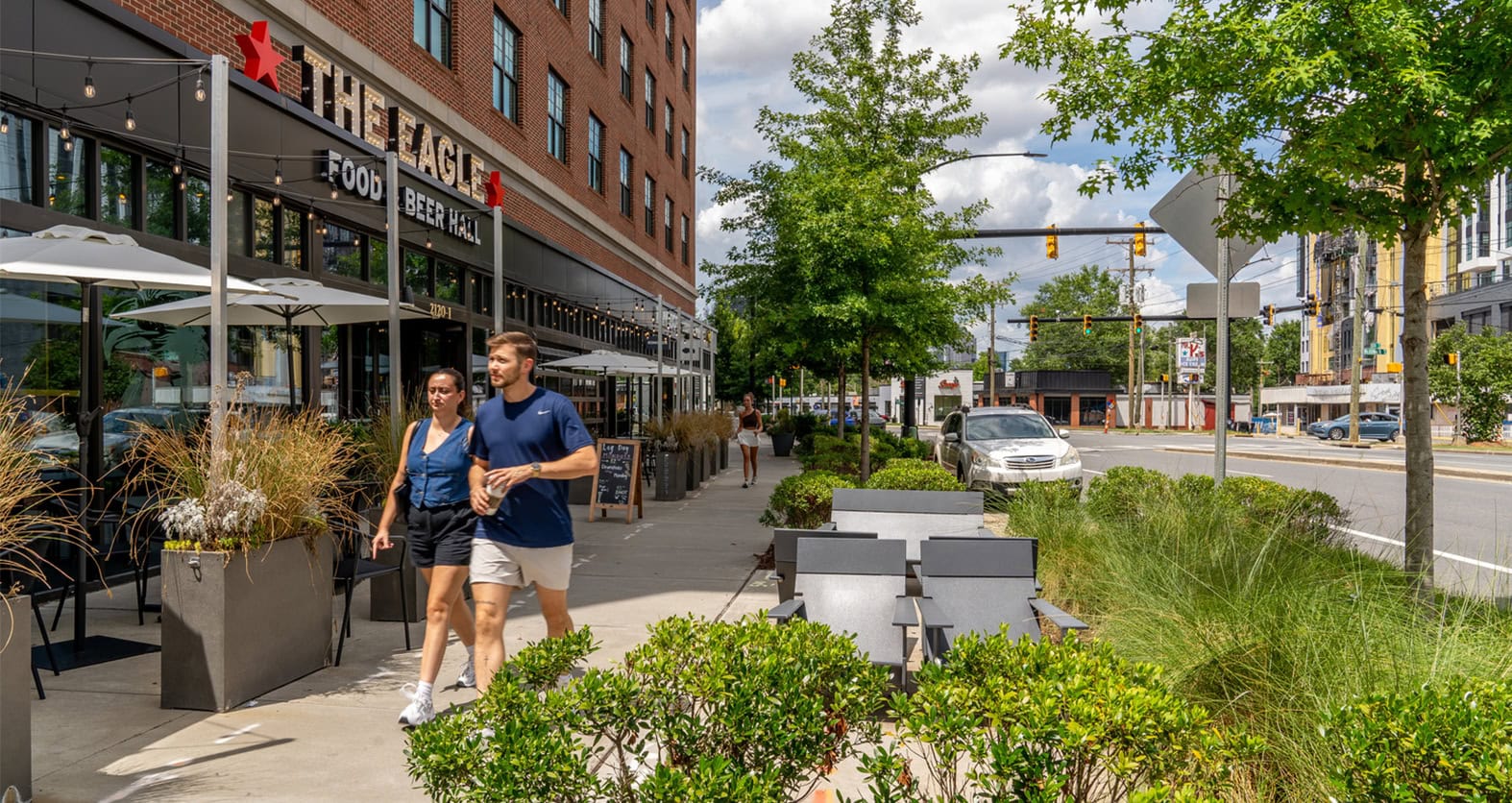
Atherton Mill, a symbol of Charlotte’s early rise to one of the largest commerce cities in the country, was the perfect setting for a central high-end retail and residential development. The design team embraced the opportunity to revive the deactivated mill and hold onto a piece of Charlotte’s history. Merging the 20-foot-tall ground level retail facilities with a beautifully curated landscaping palette and light rail, bike, and pedestrian accessibility, the team created a place for both nationally recognized brands and local businesses to thrive. Since completion, Atherton Mill has brought in a mix of 33 premium retailers and dining options, creating the perfect space for people to explore and linger.
Those places were really the central destination of commerce in Charlotte at the time, and it’s now interesting to see over 100 years later it’s coming back to being that type of central destination once again.
— Michael Tubridy, Managing Director of NOVEL Atherton by Crescent Communities
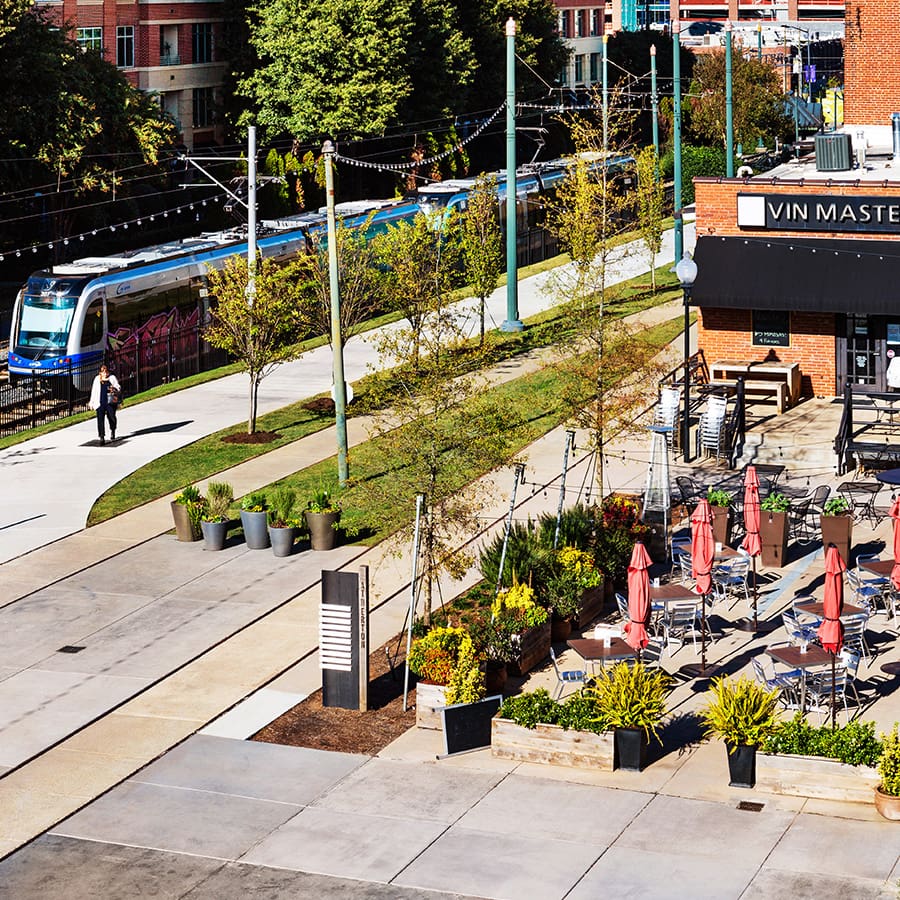
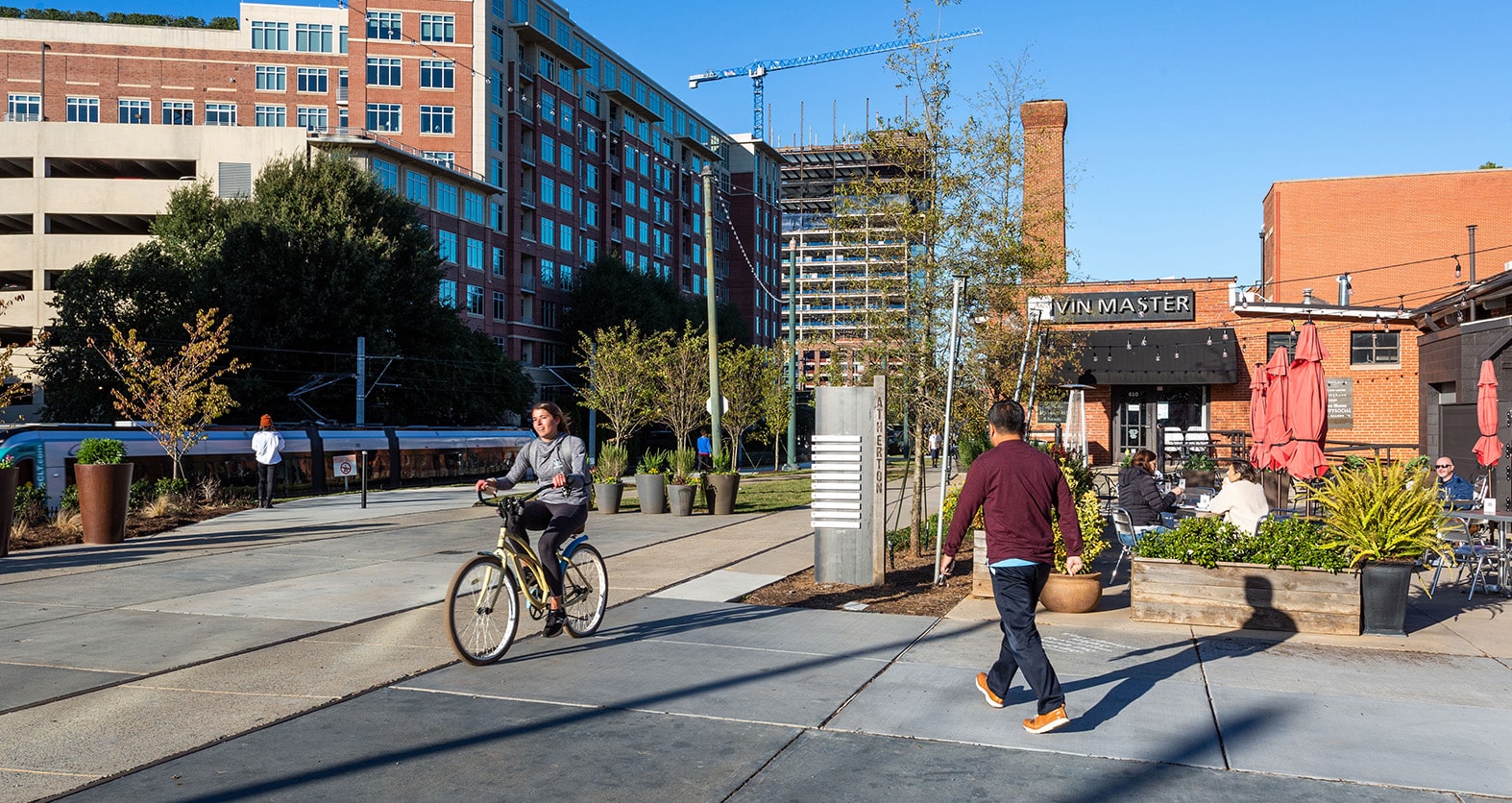
It was vital to ensure various means of pedestrian access to realize the client’s vision of an activated destination in South End. Located alongside Charlotte’s light rail system, our designers saw an opportunity to increase the site’s pedestrian traffic by connecting to the Rail Trail, Charlotte’s activated multi-use path which LandDesign envisioned the framework plan for. Having a strong relationship with the Charlotte Area Transit System, and comprehensive understanding of how their big picture goals aligned with the client’s vision for Atherton Mill, LandDesign helped mediate a public-private-partnership to extend the Charlotte Rail Trail through the Atherton Mill site.
A Hub For Mobility
Having the light rail, Rail Trail, and busy South Boulevard corridor running adjacent to the site, Atherton Mill established itself as a hub for mobility and destination for shopping, dining, and entertainment.
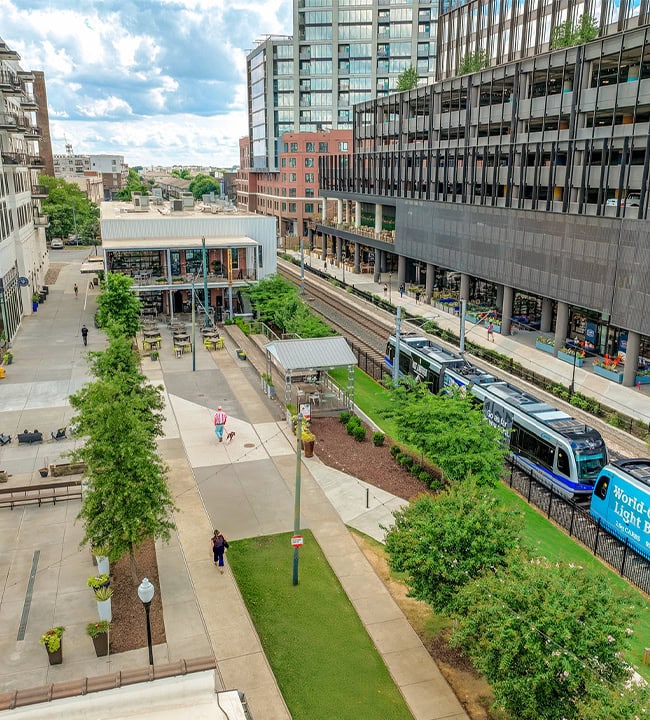

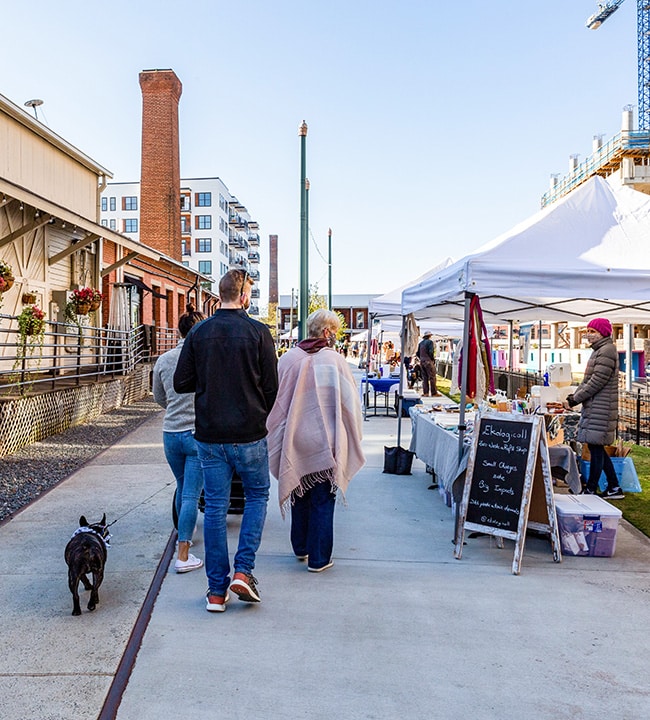
Physical
Extend the Charlotte Rail Trail to increase the site’s desirability and ease of pedestrian access
Functional
Facilitate Public-Private-Partnership land swap negotiations between the developer and Charlotte Area Transit System to allow development adjacent to the rail line
Social
Activate the site with local markets, live music, and other community events

Physical
Extend the Charlotte Rail Trail to increase the site’s desirability and ease of pedestrian access

Functional
Facilitate Public-Private-Partnership land swap negotiations between the developer and Charlotte Area Transit System to allow development adjacent to the rail line

Social
Activate the site with local markets, live music, and other community events
An Art Nouveau-Inspired Dining Experience
The Atherton Mill site is home to the old trolley barn, which housed the city’s electric trolleys that operated from 1891 until 1938. Repurposing the old trolley waiting area, rail spurs, and catenary poles the design team embraced the industrial aesthetic to create an urban hub for local events and the community to gather. Further enhancing Atherton Mill’s entertainment offerings, the Trolley Barn is now home to a local brewery and three individually branded food stations.
